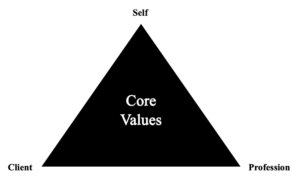Listener Biases and Accent Modification
Listener Biases and Accent Modification
Accent modification, also known as accent learning or accent acquisition, is the systematic approach to learning a new speaking pattern to help a speaker communicate more effectively. There are many reasons a client may choose to enroll in accent modification. These include:
✅ Intrinsic motivation to sound more native
👉 Needing to switch between dialects of English for their profession
😕 Frequent communication breakdowns
🌟 Increase confidence with professional speaking skills
😀 Be more proficient in communicating in English
🗣 Gain new professional skills

I do understand that others have different experiences and opinions. No one should ever feel forced to change themselves to meet others’ expectations. Several factors impact the intelligibility of accents and dialects, and it’s not all about the speaker’s abilities:
👉 Listener’s biases towards groups of people or accents
👂🏼 Listener familiarity with the topic
🗣 Listener familiarity with the L1 or dialect of the speaker
🤔 Complexity of the topic
In summary, a listener’s ability to understand accented speech depends on their familiarity with accented speech and the complexity of the topic (Jenson & Thøgersen, 2017).

Listener biases
Also, the expectation bias is true for both non-native speakers (NNS) and listeners. Non-native speakers may assume that they are asked to repeat themselves due to their accent, whereas, native speakers have errors in their speech and are asked to repeat themselves at times, too. However, research does show that while native speakers have errors in their speech, it is more noticed in accented speakers (Dalman & Kang, 2019).
Listeners may very well be biased against groups of people or accents and be completely unaware of this bias. For instance, white speakers are typically perceived to be from the United Kingdom, Australia, New Zealand, or the United States, and to be native English speakers. Listeners may even assume, based on someone’s physical appearance or clothing, that they are from a non-English speaking country and assume they will have an accent. Therefore, they may perceive someone has an accent when they are a native English speaker.
Impact on clients
So, what does this mean for accent mod clients? Listeners may give them inaccurate feedback about their accent, and non-native speakers may assume that typical miscommunications are due to their accent. It’s important to remind clients that native speakers have communication mishaps as well. While listeners have a major role in the communication loop, we cannot work with every listener a non-native speaker will interact with. We can only work with clients and help them develop effective communication strategies based on their own needs and goals.
Core Values
Core values of accent modification that I have found to be important combine self-development, client values, and professional development:
Self: Should remain curious and open about cultures and experiences of others
Client: Should develop effective communication strategies based on own needs
Profession: Should demonstrate the unique strengths that disciplines bring to AM

References
American Speech-Language-Hearing Association (n.d.). Accent Modification (Practice Portal). Retrieved December 1, 2021. from www.asha.org/Practice-Portal/Professional-Issues/Accent-Modification/.
Dalman, M., & Kang, O. (2019). Listener background in L2 speech evaluation. Metacognition in Learning. https://doi.org/10.5772/intechopen.89414
Jensen, Christian and Jacob Thøgersen. Foreign accent, cognitive load, and intelligibility of EMI lectures. Nordic Journal of English Studies. 2017;16(3):107-137.
Lim, Kari. (2022). Speaking with an American Accent: A Guide to General American English.

One Comment